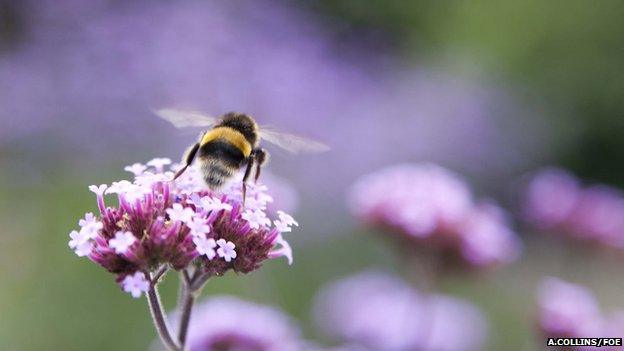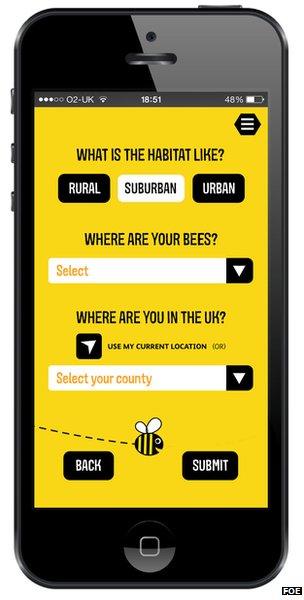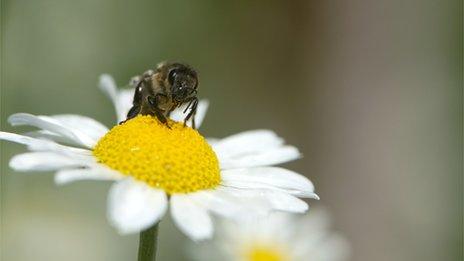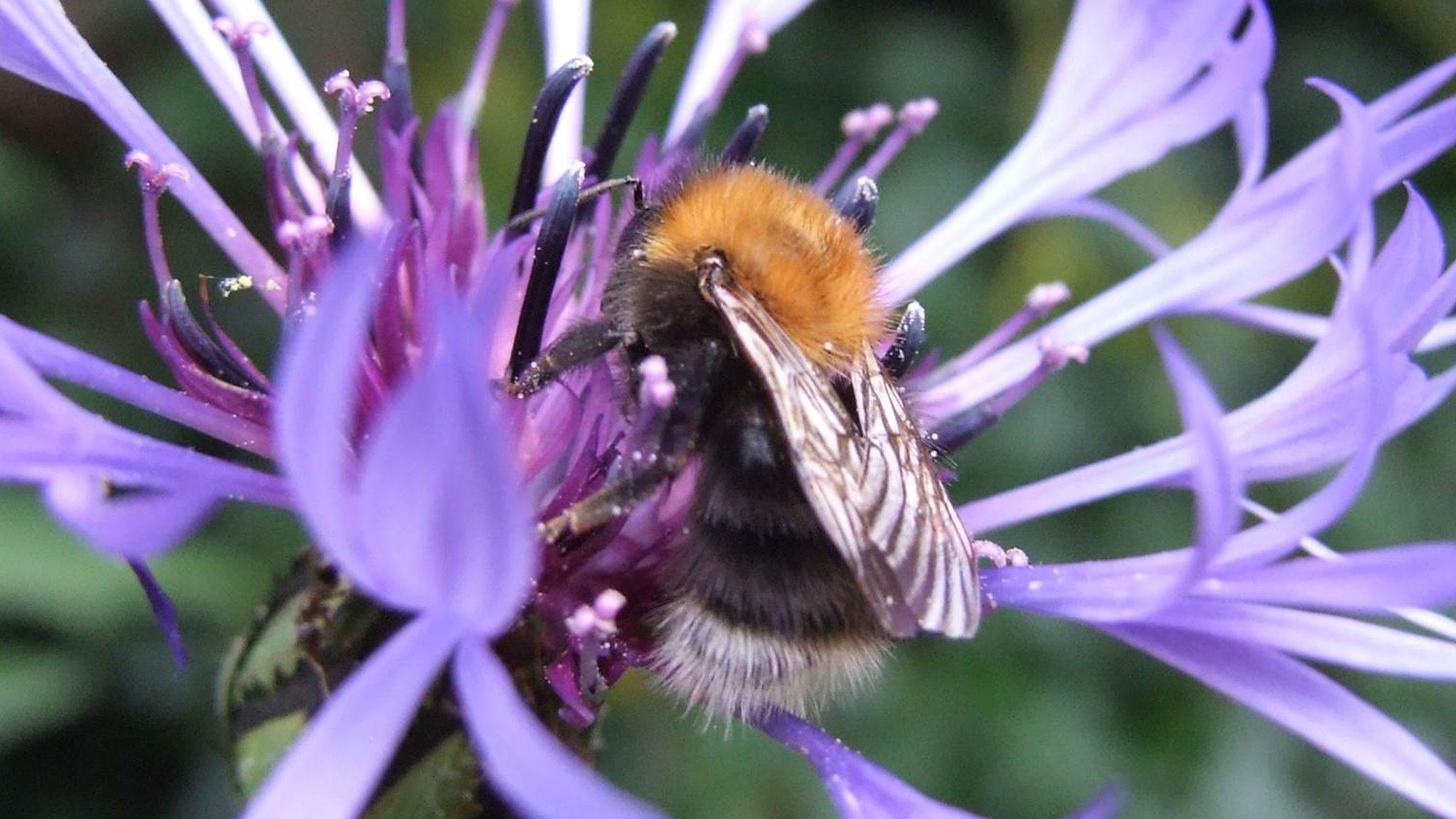Citizen science app hopes to create buzz for bee survey
- Published

Concerns over the plight of pollinators have led to the UK government launching plans to protect the insects
Organisers of the UK's first nation-wide bee count hope a new smartphone app will create a buzz among the nation's citizen scientists.
They hope thousands of people will log their sightings in order to give scientists a vital insight into the health of bee populations.
There is growing concern about wild bee numbers, as many species have recorded a serious decline in recent years.
Participants can also submit their data on the Great British Bee Count website, external.

The survey's organisers hope thousands of people will submit their sightings
The app - developed by charity Buglife, Friends of the Earth and retailer B&Q - allows users to report the species, number and location of bees they spot between now and the end of August.
The submissions will provide data to the National Biodiversity Network, external, which collates data from a wide range of national, regional and local organisations in order to provide a comprehensive overview of UK wildlife.
"The data that people collect will do an important job to help scientists fill in the blanks about where bees are thriving and where they are in trouble," explained bumblebee conservation expert Prof Dave Goulson from the University of Sussex.
Andy Atkins, executive director of Friends of the Earth, added: "The great thing is that you do not have to be an expert, everyone can get involved and be part of the generation that helps save our bees."
According to the Bumblebee Conservation Trust, there are about 250 species of bee in the UK, and the survey hopes to build up a more detailed picture of the range and behaviour of certain species.
For example, the establishment of the non-native tree bumblebee on these shores, since its arrival at the turn of the century. Researchers would be interested to know more about the species' spread northwards.
Plan bee
The plight of the bumblebee and other pollinators has been making headlines across Europe in recent years since the use of certain pesticides, known as neonicotinoids, was linked to a dramatic decline in bee populations.
In April 2013, amid growing concern about the use of the chemicals on crops, the European Commission announced an EU-wide two-year moratorium on three neonicotinoid chemicals on crops attractive to bees.
The UK government opposed the introduction of the restrictions but has since said it accepts the ban but not the science behind it.
A public consultation on plans to establish a National Pollination Strategy, external, aimed at protecting the insects that pollinate food crops and wild plants and flower, closed recently.
The government is expected to publish the strategy later in the year.
- Published10 September 2013

- Published4 June 2014
